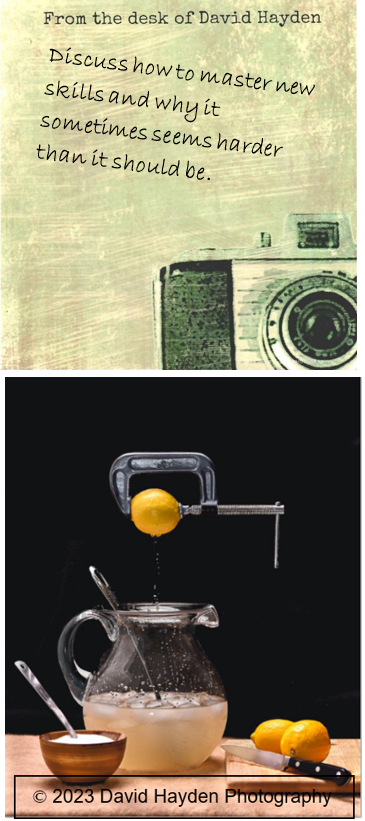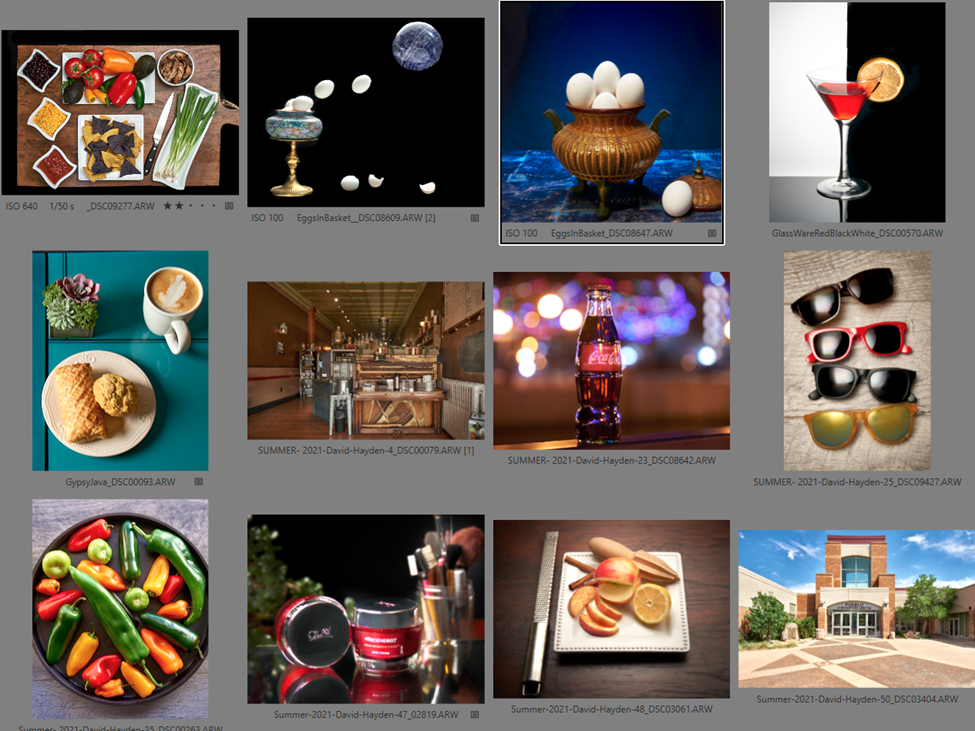Unmasking 4 Essential Levels of Mastering Your Photography
- David Hayden

- Dec 18, 2023
- 4 min read
David Hayden Photography
Unmasking 4 Essential Levels of Mastering Your Photography
Did you ever stare at a stunning photograph and wonder, "How did they do that?"
It's not magic, it's a journey - a journey with four distinct stages, where your photography skills evolve from amateurish snapshots to well thought out compelling images.
I’ve found that understanding the process of skill building not only reduces frustration but it also provides a roadmap to improvement that includes milestones so we can easily recognize our progress.
What follows is not about photography per se’. It’s about how we learn anything but, in this case, applied specifically to photography.
Background on learning theory
As far back as 375 BC Plato was discussing how people learn. In his philosophical work, The Republic, Book VII “The Cave (514a-520a)” the dialogue between Socrates and Glaucon,
Socrates uses the allegory of people trapped in a cave to explain his concept of knowledge and education.
More recently, in the 1970s, the four stages of the learning process gained wider recognition through Richard Bandler’s and John Grinder’s application of it in Neuro-Linguistic Programming (NLP). They adapted and used the framework to explain how individuals acquire and internalize new skills and knowledge.
What follows is based on the NLP model.
The Four Levels
Within the learning framework described above there are four levels:
Unconscious Incompetence: You don’t know what you don’t know. In the world of photography, this could be described as enthusiastic pointing and shooting. This is very common among the large body of cell phone users who just point their phones at something and snap a photo.
They may or may not take stunning photos but could not begin to tell you why the image is bland, interesting, compelling, or just plain horrible.
You might describe this level as one of blissful ignorance. At these early stages, beginners are not aware of their lack of skill and likely marvel at “great camera” in their phone.
When I was a kid with my first camera, I certainly went through that stage with a manual film camera. Getting a descent photo, or even one in focus was a real challenge. There was no auto focus or metering in my little Lordox.
Conscious Incompetence: This is where mastery begins. At this level, the photographer begins to realize there is a lot they don’t know about photography. The begin to realize that light, composition, subject isolation, contrast, shadows, and so make a big difference in the quality images.
At this level, some may decide they just don’t care and are happy to rely on the probabilities enough pointing and shooting will eventually render some good, maybe even stunning images.
People with a passion for photography are delighted to learn there is a lot to learn. These photographers try to get there hands on anything they can understand that will help them advance their skills. YouTube, photo clubs, books, magazines, and mentors become their best friends.
Conscious Competence: At this stage in the learning process, a photographer has learned a lot. They have studied and practiced. They can plan their images, set a goals, and with some degree of reliability get the results they want. But, it takes effort.
At this level it takes conscious effort for things to come together. It might mean making the decision to switch from Auto to shutter priority or aperture priority while consciously taking a number of images, evaluating them on the spot, thinking through the settings and trying again. The photographer has a sense of what he/she wants but doesn’t instinctively know how to dial it in.
I think most of us spend a lot of time at this level. Then as we get instinctive about some aspects of our craft, we move on to the next level.
Unconscious Competence: This is the level where the photographer knows their craft so well they barely have to think about it. At this point, your personal style begins to emerge. Because you instinctively can create the result you want, you expend your energy on deciding what you want, not how to get it.
This level is not the end, it is the beginning. This is where you begin to gather better tools and dig into more features of the tools you already have. Take CaptureOne, Photoshop, DXO, On1, Gimp or any other software a photographer will use. Chances are they have a workflow to get the image they want and in doing so maybe use 10% of the availble features in the software.
When you know your craft and tools so well, it gives you the bandwith to experiment with new tools and features and evolve as an artist.
And the cycle begins again. There are features you were not previously aware of. You learn about these features and decide to see what they do. Then you struggle through them to master or discard them. Eventually you get so good at them the new you find you just know when they are appropriate and you use them without giving them a second thought.
It’s easy to get frustrated
After we reach certain levels of unconscious competence, it’s easy to get complacent. Maybe we start thinking we are better than we are. Or maybe we succumb to thinking “that’s good enough.”
This is a path to disappointment. We get a little bored. Thoughts come to our mind like, “I worked my tail off to get where I am. I’m tired and don’t want to start over learning something else.”
Our choice is to either fade away into on the pile of “used to be great” or bite the bullet, become aware of what we didn’t even know was in our environment (tools, methods, perspectives, etc.).
Once conscious of the new things, we start the journey again. We march through the learning process until we master the new thing and soon get so much better than we were when we thought we were really good.
Just when our photography skills enable us to easily create the best images we have ever made, it’s time to start the process all over again.
The next article will discuss Mind Juggling as a way to solve problems, reduce anxiety and boost creativity.








Comments